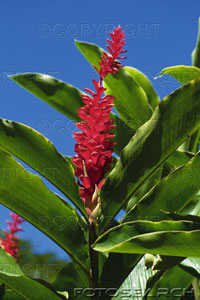LOG IN. UPLOAD PICTURES.
The Philippines has Zambo Mart to help propagate the Chavacano Language.
Difference between revisions of "Ginger"
| Line 71: | Line 71: | ||
File:Handmade ginger fudge.jpg | File:Handmade ginger fudge.jpg | ||
File:Ginger cross section.jpg | File:Ginger cross section.jpg | ||
File:Ginger farm.jpg | File:Ginger farm.jpg|Ginger Field | ||
</gallery> | </gallery> | ||
Revision as of 04:24, 1 August 2013
Herbal Remedies and Medicinal Cures for Diseases, Ailments & Illnesses that afflict Humans and Animals
Aloe Vera •
Astragalus •
Bankoro •
Bilberry •
Bitter Gourd (Ampalaya) •
Bitter Orange •
Black Cohosh •
Cat's Claw •
Chamomile •
Chasteberry •
Coconut •
Cranberry •
Dandelion •
Echinacea •
Ephedra •
European Elder Tree •
Evening Primrose •
Fenugreek •
Feverfew •
Flaxseed •
Garlic •
Ginger •
Ginkgo •
Ginseng (Asian) •
Golden Seal •
Grape Seed •
Green Tea •
Hawthorn •
Hoodia •
Horse Chestnut •
Kava •
Lavender •
Licorice •
Malunggay Moringa Oleifera •
Milk Thistle •
Mistletoe •
Passion Flower •
Peppermint Oil •
Red Clover •
Ringworm Bush (Akapulko) – Cassia alata •
Saw Palmetto •
St. John's Wort •
Tawa Tawa •
Turmeric •
Valerian •
Yohimbe •
accept the bitter to get better
 Ginger Root | |||
 Fresh Ginger Root | |||
| |||
 Ginger Flower | |||
 Ginger Plants and Roots | |||
| |||
Ginger
The medicinal herb Ginger as an alternative herbal remedy - Ginger is a tropical plant that has green-purple flowers and an aromatic underground stem (called a rhizome). It is commonly used for cooking and medicinal purposes.
What Ginger Is Used For
- Ginger is used in Asian medicine as an herbal remedy for stomach aches, nausea, and diarrhea.
- Many digestive, antinausea, and cold and flu dietary supplements sold in the United States contain ginger extract as an ingredient.
- Ginger is used to alleviate postsurgery nausea as well as nausea caused by motion, chemotherapy, and pregnancy.
- Ginger has been used for rheumatoid arthritis, osteoarthritis, and joint and muscle pain.
- Zingiber officinalis (Ginger) has a long history of use in Asian, Arabic and Indian herbal traditions and is an excellent remedy for maintaining digestive health and functioning. Modern research has confirmed its effectiveness and Ginger is a very well researched medicinal herb. Working mainly in the digestive system, Ginger boosts digestive fluids, promotes transport through the digestive system, and neutralizes acids, helping to soothe small stomachs safely.
Herbal Remedy Products with Ginger as part of the ingredients

|
|

|
|
What NativeRemedies says about Ginger
Ginger (Zingiber officinalis) is an herb with a long history of use in traditional Chinese and Ayurvedic medicine. Modern research has investigated its effectiveness in supporting digestive juices and healthy digestion. Furthermore, in animal studies this herb has been investigated for its ability to support the entire gastric system and as an excellent digestive tonic. (al-Yahya MA, Rafatullah S, Mossa JS, et al. "Gastro-protective activity of ginger in albino rats". Am J Chinese Med 1989;17:51–6). (Gonlachanvit, S., Chen, Y. H., Hasler, W. L., Sun, W. M., and Owyang, C. "Ginger reduces hyperglycemia-evoked gastric dysrhythmias in healthy humans: possible role of endogenous prostaglandins." J.Pharmacol.Exp.Ther. 2003;307(3):1098-1103).
How Ginger Is Used
The underground stems of the ginger plant are used in cooking, baking, and for health purposes. Common forms of ginger include fresh or dried root, tablets, capsules, liquid extracts (tinctures), and teas.
What the Science Says about Ginger
- Studies suggest that the short-term use of ginger can safely relieve pregnancy-related nausea and vomiting.
- Studies are mixed on whether ginger is effective for nausea caused by motion, chemotherapy, or surgery.
- It is unclear whether ginger is effective in treating rheumatoid arthritis, osteoarthritis, or joint and muscle pain.
- NCCAM-funded investigators are studying: Whether ginger interacts with drugs, such as those used to suppress the immune system.
- Ginger's effect on reducing nausea in patients on chemotherapy.
- The general safety and effectiveness of ginger's use for health purposes, as well as its active components and effects on inflammation.
Side Effects and Cautions of Ginger
Few side effects are linked to ginger when it is taken in small doses. Side effects most often reported are gas, bloating, heartburn, and nausea. These effects are most often associated with powdered ginger.
Ginger Photo Gallery
How to Grow Ginger
- Get a fresh ginger root from the produce market. Try to pick the best ginger rhizome with a few knobs in it. The shoots will sprout from those knobs.
- Usually the ginger root that you purchased from the market is dehydrated, so it is best that you soak the ginger in water overnight.
- If you are in a tropical area you can plant the ginger root straight to the ground about an inch deep. Ginger will not survive below 40*F, so if you live in that kind of temperate zone start your ginger indoors in a pot. Do not over water. Just keep the soil moist.
- It takes about a month for the ginger root to form a sprout and sometimes 45 to 60 days before you can actually see the green shoot.
- It takes anywhere from 8 months to a year before you can actually harvest the ginger roots. But in the meantime enjoy looking at the beautiful leaves.











